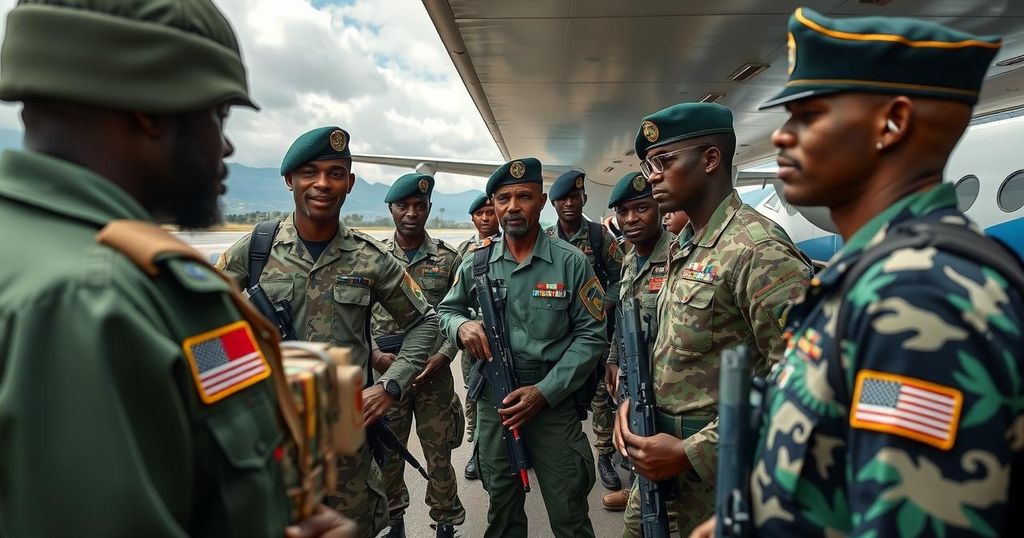Russia’s Deployment of Military Instructors in Equatorial Guinea Explained

Russia has sent 200 military instructors to Equatorial Guinea to enhance the security of President Teodoro Obiang Nguema Mbasogo. The instructors will train elite units tasked with protecting both the president and his son, Teodoro Nguema Obiang Mangue, a likely successor. This effort fits into a broader strategy by Russia to strengthen its influence in Central and West Africa, amidst existing mercenary support for military regimes.
Recent reports indicate that Russia has dispatched approximately 200 military instructors to Equatorial Guinea with the objective of enhancing the security of President Teodoro Obiang Nguema Mbasogo. These instructors are tasked to train elite security units specifically responsible for the protection of the president and his potential successor, Teodoro Nguema Obiang Mangue, who is seen as a key figure in the country’s leadership transition. The mission may also see involvement from military personnel from Belarus, as well as representatives from Russian airborne troops. Analysts suggest that this movement is part of Russia’s broader strategy to assert its influence in Central and West Africa, particularly within the context of Equatorial Guinea, where a significant number of Russian mercenaries are reportedly active in supporting military regimes and combating insurgent threats. Since coming to power in a coup in 1979, President Obiang Nguema Mbasogo has maintained a firm grip on the nation’s governance, and the introduction of Russian military support may signal a continued focus on regime security and stability.
The positioning of Russian military instructors in Equatorial Guinea reflects a growing trend of increased Russian involvement in African nations, particularly where military regimes seek external support to reinforce their power. This aligns with a historical backdrop in which Russia, under varying administrations, has sought to expand its geopolitical influence in resource-rich regions, capitalizing on local conflicts and demands for military assistance. The relationship with Equatorial Guinea is particularly noteworthy given its political landscape characterized by a long-standing dictatorship and lack of democratic processes.
In summary, the deployment of Russian military instructors to Equatorial Guinea appears to be a strategic maneuver aimed at bolstering the security apparatus of President Teodoro Obiang Nguema Mbasogo. This action highlights Russia’s ambitions to increase its influence in Central and West Africa, potentially setting the stage for a deeper military and political presence in the region.
Original Source: 112.ua







